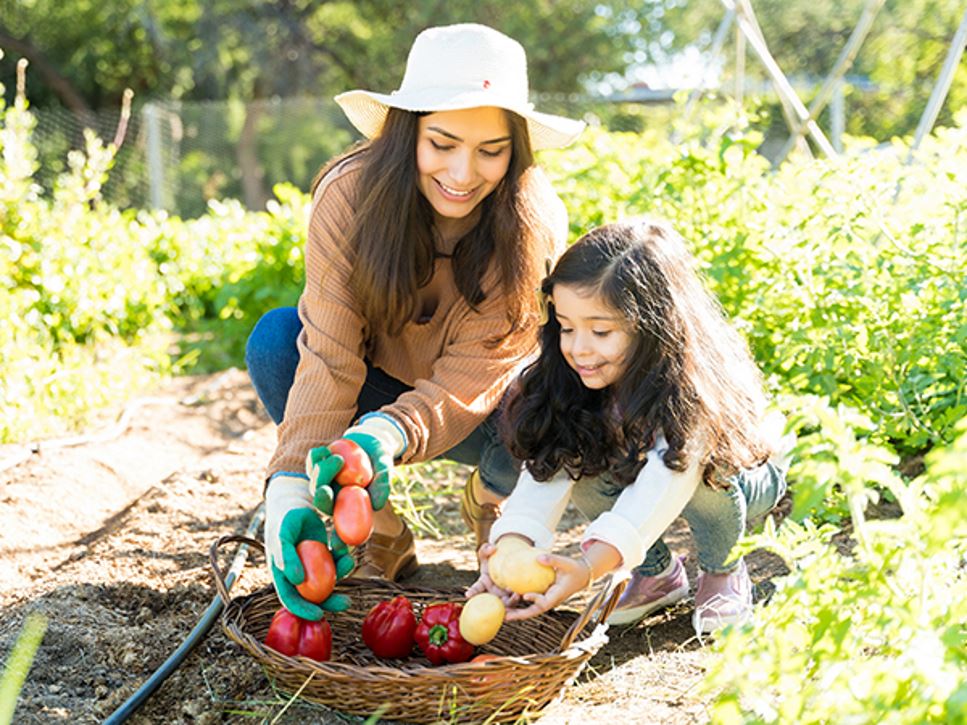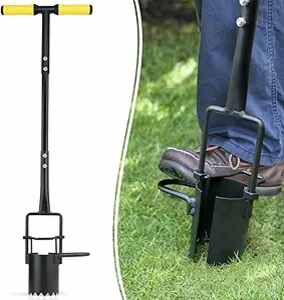How Gardening Can Enhance Your Health and Well-being
How Gardening Can Enhance Your Health and Well-being
Blog Article
Comprehending the Various Kinds Of Horticulture and Exactly How They Add to a Healthier Way Of Life and Setting

Benefits of Vegetable Horticulture
Many individuals are significantly identifying the myriad advantages of vegetable gardening as a crucial element of a healthier lifestyle. Involving in vegetable horticulture supplies countless physical health and wellness advantages, consisting of enhanced exercise, which enhances cardio wellness and promotes overall physical fitness. The act of growing, weeding, and harvesting needs movement and can help deal with sedentary habits, contributing to weight management and boosted muscle mass tone.
Furthermore, growing one's own vegetables substantially enhances dietary quality. Organic produce is often fresher and a lot more nutrient-dense contrasted to store-bought alternatives, as it can be taken in quickly after harvest. This ease of access encourages a greater intake of fruits and veggies, which are vital for preventing persistent diseases.
In addition, veggie gardening cultivates mental well-being by giving a therapeutic electrical outlet for stress relief and relaxation. Jointly, these advantages underscore the relevance of vegetable gardening as a foundation of a much healthier lifestyle.
Exploring Blossom Gardening

Along with visual advantages, flower horticulture sustains regional ecosystems. Many flowering plants draw in pollinators, such as and butterflies, which are essential for preserving biodiversity. The presence of diverse vegetation can also improve dirt wellness, as different plants add to nutrition biking and boost dirt framework.
Moreover, flowers can play a substantial role in advertising sustainable methods. Lots of gardeners decide for native or drought-resistant varieties, which call for much less water and marginal chemical inputs. This technique not just profits the environment yet also motivates liable gardening behaviors.
Eventually, blossom horticulture acts as an essential part of an all natural gardening method. Gardening. By growing elegance and supporting regional communities, it balances with veggie horticulture and emphasizes the importance of nurturing both our physical and psychological wellness with nature
Container Gardening Benefits
Container gardening offers many advantages that make it an enticing choice for both novice and seasoned gardeners. One of the primary advantages is its versatility; containers can be positioned on patio areas, verandas, and even indoors, permitting gardening in spaces with minimal ground gain access to. This flexibility makes it possible for individuals in urban settings or those with little backyards to cultivate plants successfully.
Additionally, container gardening offers boosted control over dirt high quality and dampness levels. Gardeners can pick certain soil mixes to maximize plant health and mitigate problems like weeds and pests. The wheelchair of containers additionally enables for easy relocation to optimize sunshine exposure or shield plants from harsh weather condition.
In addition, container yards can be visually pleasing, providing a chance for imagination in design. Gardening. They can work as attractive components that boost outside or indoor spaces while promoting biodiversity by bring in pollinators
Lastly, container gardening can add to a much healthier way of life by motivating physical task, as it usually entails lifting, planting, and keeping plants. Generally, the benefits of container horticulture make it an easily accessible and satisfying method for those seeking to boost their way of life and atmosphere.
The Increase of Vertical Horticulture
As metropolitan spaces come to be progressively crowded, the pattern of upright horticulture has actually taken off, permitting people to maximize their gardening potential in limited areas. This cutting-edge strategy entails expanding plants in vertical frameworks, such as wall-mounted planters, trellises, or specialized upright click for more yard systems. The appeal of vertical gardening lies not just in its efficient use space more information but likewise in its aesthetic contribution to metropolitan atmospheres, transforming bare wall surfaces right into lavish environment-friendly landscapes.
Upright gardens can be mounted in homes, verandas, and neighborhood spaces, giving a platform for expanding a variety of plants, consisting of herbs, vegetables, and decorative flowers. This approach encourages biodiversity and can enhance air high quality by filtering contaminants while advertising a link to nature in largely booming areas. Furthermore, vertical gardening uses useful advantages, such as boosted yield per square foot, making it an appealing alternative for urban garden enthusiasts seeking to grow their very own food.

Lasting Practices in Horticulture
Embracing sustainable practices in gardening is vital for promoting ecological wellness and guaranteeing the viability of our natural deposits. Lasting horticulture strategies focus on reducing ecological impact, conserving water, and fostering biodiversity. By executing practices such as organic gardening, garden enthusiasts can lessen the use of artificial plant foods and pesticides, which can harm neighborhood communities.
Buddy growing is one more effective sustainable technique, where specific plants are expanded together to improve development and prevent parasites normally. Additionally, using native plants in landscape design supports regional wild animals and calls for much less maintenance, as they are naturally adjusted to the regional climate and dirt conditions.
Water preservation techniques, such as rainwater harvesting and drip irrigation, assistance to successfully manage water resources, thus minimizing waste. Moreover, composting organic waste not just improves the dirt yet additionally decreases garbage dump contributions, advertising internet a round economic situation.
Lastly, practicing crop rotation and cover cropping boosts soil wellness and reduces the danger of bug problems. By incorporating these sustainable practices, garden enthusiasts can create resilient environments that add to a much healthier lifestyle while safeguarding the atmosphere for future generations.
Final Thought

Finally, the varied techniques of gardening, including vegetable, flower, container, and vertical horticulture, collectively advertise a much healthier lifestyle and enhance environmental sustainability. Each type offers unique benefits, from providing fresh produce and attracting pollinators to optimizing limited spaces and motivating biodiversity. By fostering sustainable practices, these gardening approaches not only contribute to specific wellness but likewise support wider eco-friendly conservation efforts, inevitably decreasing dependence on commercial agriculture and enhancing neighborhood strength.
Report this page